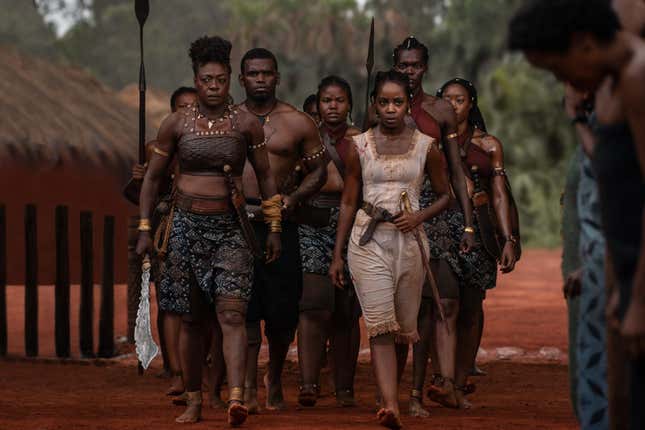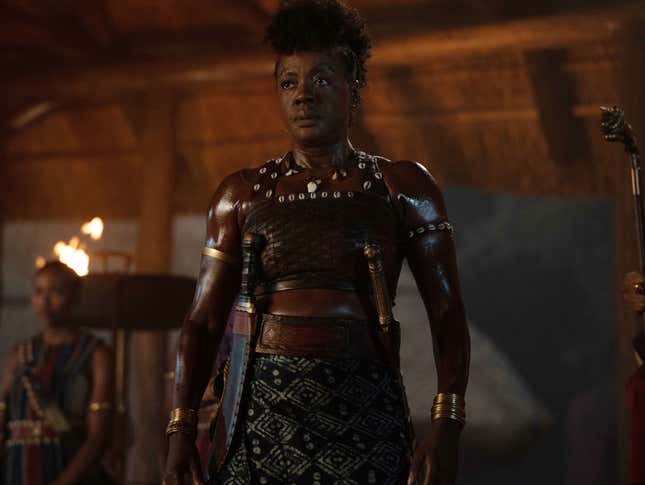‘The Woman King’ Manages to Focus on Sexual Violence Without Unnecessarily Graphic Scenes
The movie is honest about the trauma of rape, but doesn't rely on violently depressing storytelling.
EntertainmentMovies

Editors note: This story contains multiple spoilers for The Woman King.
The Woman King is the rare story of women on the frontlines of battle. They’re protecting each other, avenging each other, saving each other, and men are mere inconveniences, often just getting in the way. It’s a welcome and engaging reversal in dynamics, but in depicting the emotional journey of General Nanisca (Viola Davis), the titular leader of the all-women Agojie army defending the 19th century West African kingdom of Dahomey, The Woman King is also intimately aware of how rape and sexual violence have always been a devastating tradition of war.
-

-

-

-

-

-

-

-

-

-

-

-

-

-

-

-

-

-

-

-

-

-

-

-

-

-

-

-

-

-

-

-

-

-

-

-

-

-

-

-









































